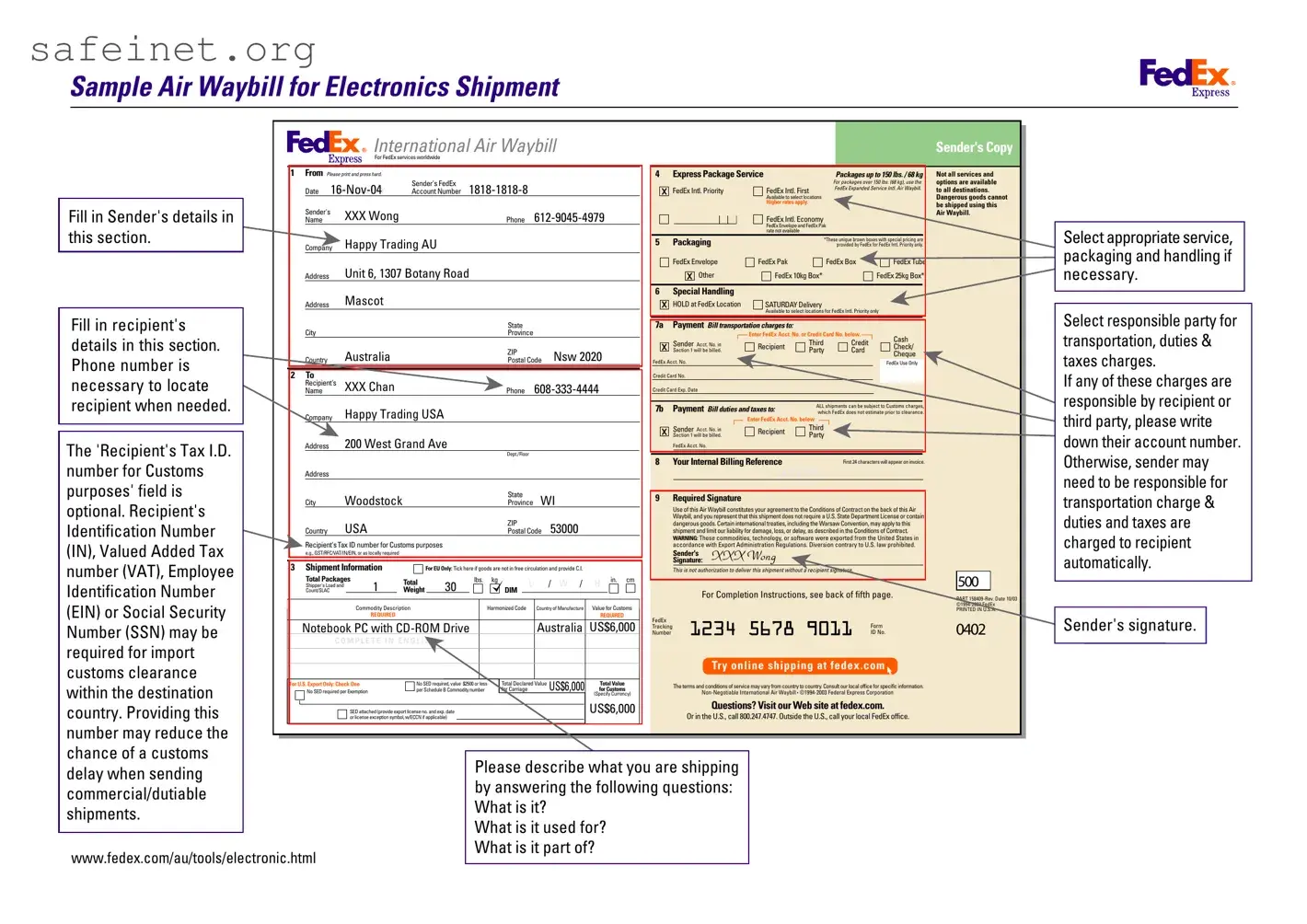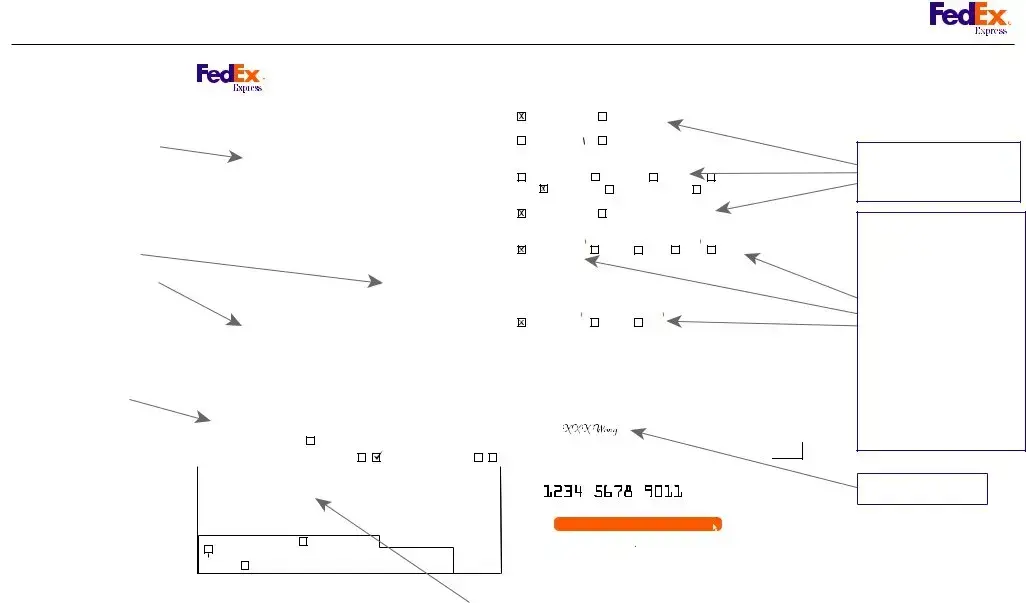The FedEx Air Waybill (AWB) serves as a critical document in the logistics and shipping industry, but it is not the only one of its kind. The Bill of Lading, often used in freight transportation, is similar in that it acts as a receipt for goods being shipped. It includes important details such as the type and quantity of goods, the destination, and terms of carriage. Like the AWB, it can also serve as a document of title, allowing the holder to claim the goods upon arrival at the destination port. Both documents play essential roles in ensuring smooth operations throughout the shipping process.
Another comparable document is the Commercial Invoice, which accompanies goods during international shipping. This document serves as an official record of the transaction and includes information regarding the buyer, seller, items being shipped, and their respective values. Just as the AWB facilitates tracking and transportation of the shipment, the Commercial Invoice facilitates customs clearance by specifying the taxes and charges that need to be paid. Both documents are essential for compliance with legal and regulatory requirements during the movement of goods.
The Packing List is another document similar to the AWB as it details the contents of a shipment in a comprehensive manner. This list includes individual item descriptions, weights, and dimensions, providing an overview of what is included in a package. The Packing List ensures that the sender and recipient can verify the items received match what was shipped, thus minimizing disputes. Like the AWB, it assists in the shipment's handling and is crucial during inspections at customs.
The Consignment Note serves a purpose akin to that of the FedEx AWB but is commonly utilized in domestic shipments. This document outlines the contracts between the sender and the carrier regarding the transport of goods. It contains similar details, such as sender and recipient information, payment terms, and instructions regarding delivery. Consignment Notes provide both parties with records that help optimize accountability and tracking, similar to the features of an AWB.
The Proforma Invoice is often used in international transactions, sharing similarities with a Commercial Invoice but with a critical difference—it is not a demand for payment. It provides an estimate of the costs involved in the shipment, allowing the buyer to evaluate the purchase before formalizing the transaction. While the FedEx AWB outlines shipping details, the Proforma Invoice offers financial clarity, serving as a bridge to formal agreements necessary for shipments.
The Certificate of Origin is another vital document that parallels the AWB, particularly in international shipping. This document certifies that the products being shipped originate from a particular country and is often required by customs to determine tariffs. Like the AWB, the Certificate of Origin supports compliance with international trade regulations. It can affect the treatment of the shipment under various trade agreements and tariffs, reinforcing its significance in global logistics.
The Dangerous Goods Declaration is essential for shipments that contain hazardous materials. This document outlines the nature of the dangerous goods being transported along with safety measures needed during shipping. Its importance is highlighted when compared to the FedEx AWB, especially since shipments containing dangerous goods often require special handling and documentation to comply with safety regulations. Both documents must be filled out precisely to avoid legal issues and ensure safe transport.
A Freight Invoice is usually issued by the carrier, detailing the costs associated with transporting the goods. It includes charges for shipping, handling, and other related services. This document provides transparency about the costs involved in conjunction with the shipment, much like the transport charges outlined in the AWB. When combined with the FedEx AWB, it enhances understanding of the financial aspects tied to the shipping process.
The Export Declaration is mandated by the U.S. government for goods being exported. This document provides customs with necessary information regarding the shipment and ensures compliance with export regulations. While the FedEx AWB serves to transport goods, the Export Declaration confirms that all legal customs processes are followed. Together, they ensure both the physical movement of goods and adherence to regulatory requirements during international shipping.

